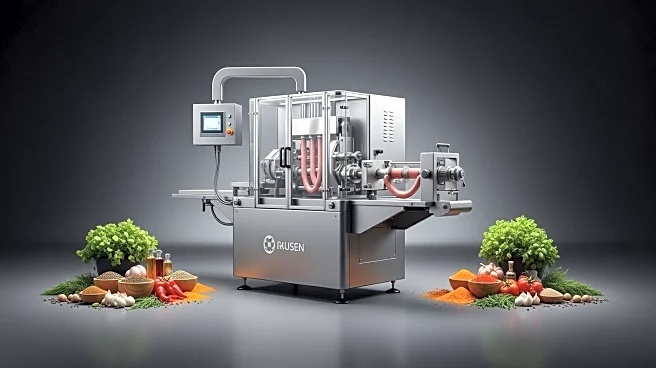What's Happening?
JBS USA has initiated the construction of a new sausage production facility in Perry, Iowa, with an investment of $135 million. The plant is expected to create 500 direct jobs and produce 130 million pounds
of sausage annually. Initially, the facility will operate with one shift and 250 employees, with plans to expand to two shifts. Wesley Batista Filho, CEO of JBS USA, emphasized the significance of this development for the company and the local community, highlighting Perry's history in food production. The city council in Perry has approved a $10 million tax-increment financing rebate to support the project.
Why It's Important?
The establishment of the JBS sausage plant in Perry is a significant boost to the local economy, providing substantial employment opportunities and supporting Iowa's pork producers. The investment reflects JBS's commitment to expanding its operations in the U.S. and enhancing its production capabilities. The plant will also contribute to the local community through JBS's Hometown Strong and Better Futures programs, offering educational benefits to employees and their families. This development underscores the growing demand for meat products and the strategic importance of Iowa in the meat production industry.
What's Next?
The new facility is set to open in 2026, with JBS planning to expand its workforce and production capacity. The company will continue to integrate its community support programs in Perry, fostering local development and education. As the plant becomes operational, JBS may explore further expansion opportunities in Iowa, leveraging the state's resources and infrastructure. The success of this project could influence other meat producers to invest in similar facilities, potentially leading to increased competition and innovation in the industry.
Beyond the Headlines
The investment by JBS in Perry highlights broader trends in the meat production industry, including the emphasis on sustainable practices and community engagement. The company's initiatives to provide educational benefits reflect a growing corporate responsibility trend, aiming to improve employee welfare and community relations. This development may also prompt discussions on the environmental impact of large-scale meat production and the need for sustainable practices in the industry.









